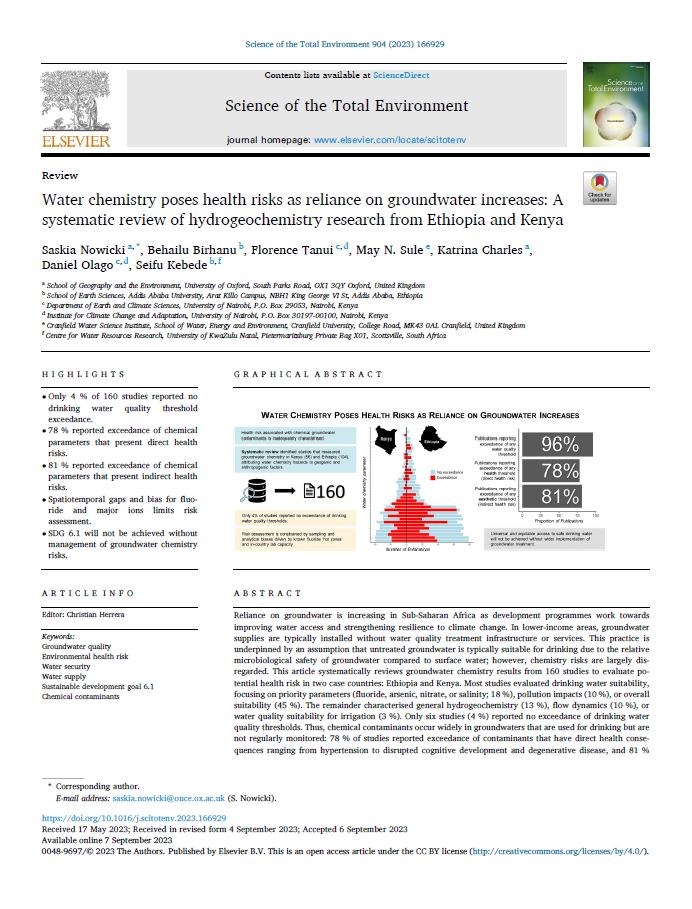Authors: Saskia Nowicki, Behailu Birhanu, Florence Tanui, May N. Sule, Katrina Charles, Daniel Olago, Seifu Kebede
Reliance on groundwater is increasing in Sub-Saharan Africa as development programmes work towards improving water access and strengthening resilience to climate change. In lower-income areas, groundwater supplies are typically installed without water quality treatment infrastructure or services. This practice is underpinned by an assumption that untreated groundwater is typically suitable for drinking due to the relative microbiological safety of groundwater compared to surface water; however, chemistry risks are largely disregarded. This article systematically reviews groundwater chemistry results from 160 studies to evaluate potential health risk in two case countries: Ethiopia and Kenya. Most studies evaluated drinking water suitability, focusing on priority parameters (fluoride, arsenic, nitrate, or salinity; 18 %), pollution impacts (10 %), or overall suitability (45 %). The remainder characterised general hydrogeochemistry (13 %), flow dynamics (10 %), or water quality suitability for irrigation (3 %). Only six studies (4 %) reported no exceedance of drinking water quality thresholds. Thus, chemical contaminants occur widely in groundwaters that are used for drinking but are not regularly monitored: 78 % of studies reported exceedance of contaminants that have direct health consequences ranging from hypertension to disrupted cognitive development and degenerative disease, and 81 % reported exceedance of aesthetic parameters that have indirect health impacts by influencing perception and use of groundwater versus surface water. Nevertheless, the spatiotemporal coverage of sampling has substantial gaps and data availability bias is driven by a) the tendency for research to concentrate in areas with known water quality problems, and b) analytical capacity limitations. Improved in-country analytical capacity could bolster more efficient assessment and prioritisation of water chemistry risks. Overall, this review demonstrates that universal and equitable access to safe drinking water (Sustainable Development Goal target 6.1) will not be achieved without wider implementation of groundwater treatment, thus a shift is required in how water systems are designed and managed.

